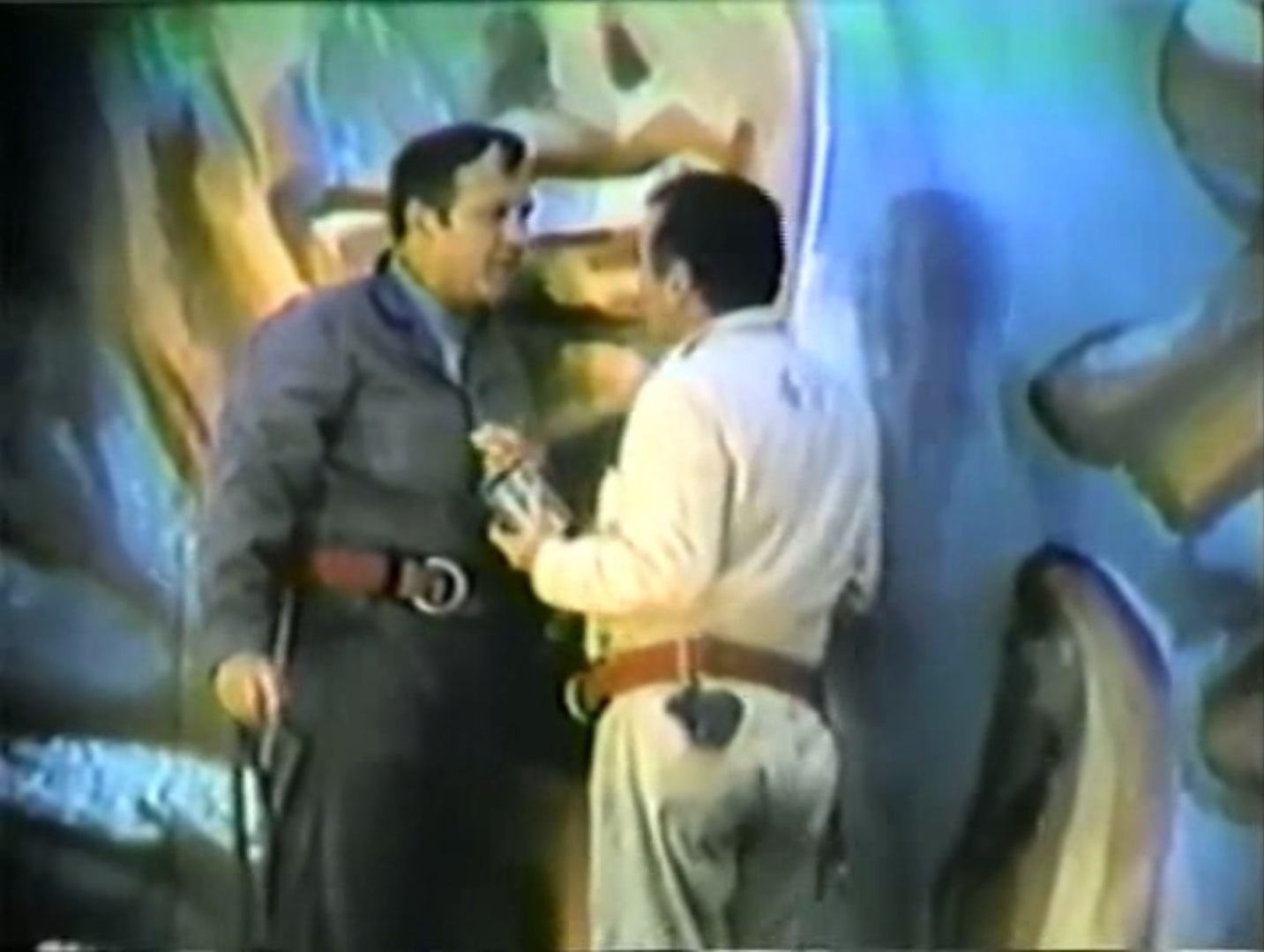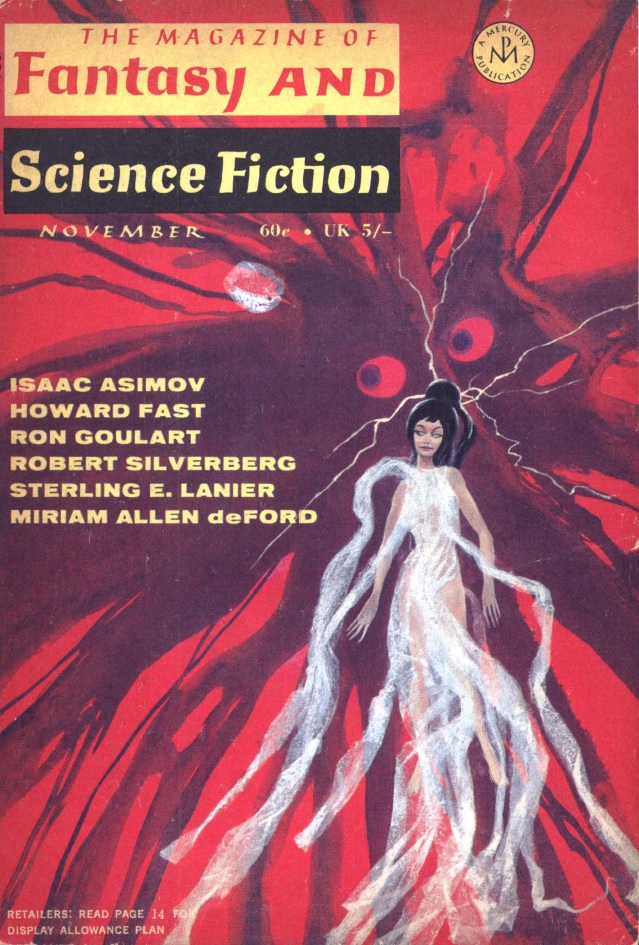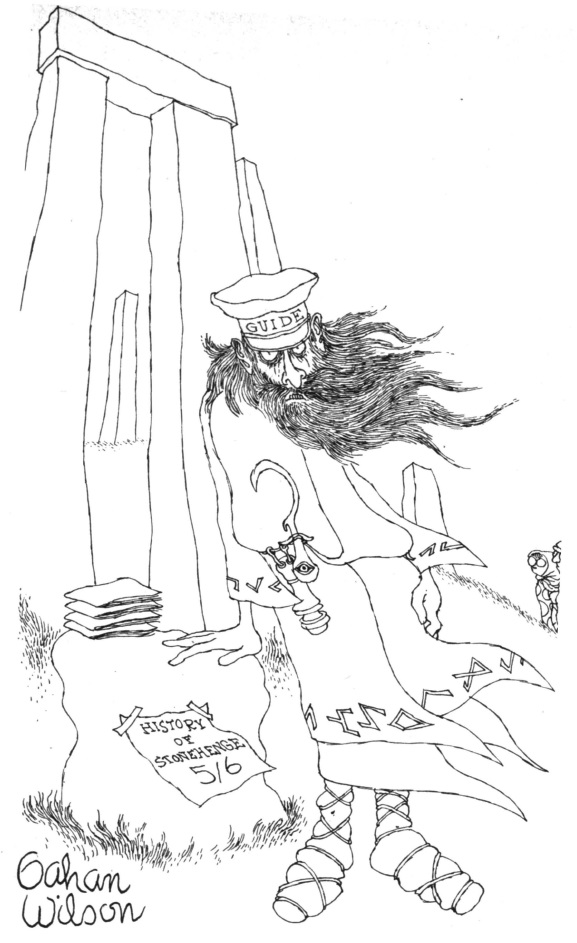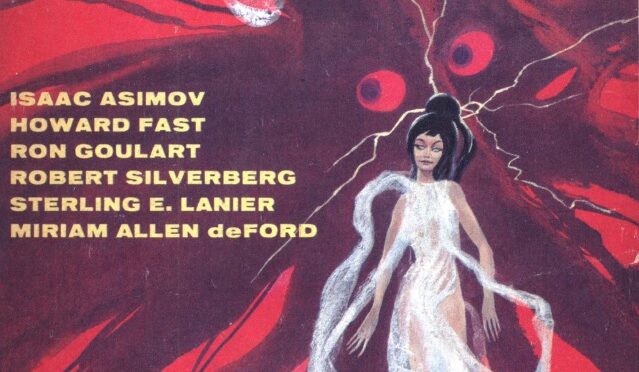
by Gideon Marcus
Rats!
A study just completed by the Department of Health, Education, and Welfare has concluded that cyclamates may cause bladder tumors in rats.
How does this affect you?
Decades ago, it paid to be plump. It was a sign of wealth and health. It was attractive! These days, we're in the Grape Nuts generation, and it's now all about fitness and being slender. How to reconcile the popularity of fizzy sweet sodapop and the desire to cut sugar from our diets (despite the Sugar Council telling us it's good for us)?

Early this decade, a slew of soft drinks came out, sweetened not with sugar, but with a blend of artificial sweeteners—saccharin and cyclamates. Diet Rite and Tab may not have tasted just like Coke and Pepsi, but they did the job and preserved the waistline.

But now, thanks to the HEW report, soft drink companies are all pulling their cyclamate sodas off the market as of February 1, 1970. Grab your vintage colas while you can, because they won't exist come next spring!
What does the future hold for diet sodas? Well, for now, saccharin is still legal, though by itself, it's a bit bitter (remember the "sach" tablets Winston Smith put in his coffee in 1984)? There is talk of putting sugar back into diet sodas…just less of it.
And, since this is a science fiction 'zine, we can always speculate that new and better sweeteners will be developed. Maybe even on purpose this time—did you know that both saccharin and cyclamates were discovered by accident? Constantin Fahlberg was researching coal tar derivatives and forgot to wash his hands before going for lunch, when he discovered saccharine was discovered in 1879. And grad student Michael Sveda was working on anti-fever drugs in 1937; some got on a cigarette, and when he took a drag, it tasted sweet.
Cue the commercials:

Bob: My cigarette just isn't doing it for me anymore.
Larry: Try mine! It's new.
Bob: Hey! Not bad…sweet!
Larry: You better believe it.

by Jack Gaughan
Of course, with a lede like the one I just wrote, you can guess that the latest issue of Fantasy and Science Fiction is less than palatable.
The Mouse, by Howard Fast
Three-inch aliens descend to Earth in a teeny saucer and smarten up a little mouse to be their telepathic eyes and ears to scout out the world. When the rodent's work is done, he is heartbroken to find that the aliens must leave, abandoning him to a life of loneliness, the sole example of his kind. Despondent, he kills himself.
Not only is the story an unecessary downer (the mouse was exposed to the worst humanity had to offer, but also the best—couldn't he have found human friends to love?) but it's written clunkily, as though Howard dashed it off quickly, and didn't bother to correct it. It's the kind of work I do if I neglect to read my work aloud before sending it in to a publisher.
Two stars.
A Feminine Jurisdiction, by Sterling E. Lanier
The latest Brigadier Ffellowes shaggy dog tale has him stranded just after the Nazi invasion of Crete (how timely!) on an Aegean island lost to time, housing a trio of mythical sisters. One of them has, shall we say, a stony-eyed gaze. Of course, we know the Brigadier will escape (how else could he live to tell the tale?) but the fun is in the how.
I could have done without the casual sexism. World-traveler Ffelowes surely could not have forged his opinion on matriarchies solely on this one stacked-deck example. Beyond that, the well Lanier plumbed for material is a little mined out. Still, it's a competent and entertaining yarn.
Three stars.
Penny Dreadful, by Ron Goulart
A ghost writer cum secret agent (or is it the other way around?) is on one of the planets of the Barnum system, a frequent Goulart setting, mostly known from his Ben Jolson stories. All he wants to do is collect his fee from deadbeats. In the process, he ends up cleaning up local politics.
Goulart, at his best, does light, spy/detective stuff really well. This is not his best. Indeed, it's among his worst—incomprehensible and somehow incomplete.
Two stars.
The CRIB Circuit, by Miriam Allen deFord
A young computer operator, who died of cancer in 1970, is revived after five centuries of cold sleep. But the Brave New World she wakes up into is not interested in welcoming her as a citizen, but only as a temporary subject of study before she is to be put down again. Must keep the population constant, you see! Can Alexandra come up with a way to extend her second life?
I had thought her solution would be a variation on the Scheherazade shtick from 1001 Arabian Nights, but it's actually a bit cleverer. There's also a nice sting in the tail of the piece. I should have seen it coming; that I didn't is a credit to DeFord's writing.
Four stars, and my favorite piece of the ish.
Come Up and See Me Some Time, by Gilbert Thomas
A pre-teen genius builds a psychic space ship and prepares to head off into another dimension, presumably to be reunited with his murdered mother. But not before giving an ostentatious and horrific reply to his father, who we learn is responsible for his wife's death.
Told from the point of view of the father, the tale is just silly. It's more of a mood piece than anything, and frankly, I didn't care enough about the schmuck to get into his head.
One star.
After the Bomb Cliches, by Bruce McAllister
Martin Potsubay is convinced The End Is Nigh. So he builds a bomb shelter, and when the air raid sirens begin to blow, ensconces himself inside. But the trumpets keep blowing, and in the end, there's no way to avoid Armageddon…or the heavenly recruitment officers!
This is definitely my favorite McAllister piece to date, bordering right between three and four stars. On reflection, I think I'll finally give him the win.
Four it is (but I still like the deFord better!)
The Sin of the Scientist, by Isaac Asimov
The Good Doctor takes Oppenheimer's "physicists have known sin" line and runs with it, defining "sin" in a scientific sense, and discussing which scientists have committed it. His answer is an interesting one.
Three stars.
Diaspora, by Robin Scott
A catastrophe has rendered the Earth uninhabitable, and just one small colony of 400 humans is left. Establishing themselves on a kind world, farm yields explode and the settlement prospers. Yet, their puritannical leader refuses to loosen the reins of privation. One rebellious type chafes under the tyrant, and so he plots an escape, establishing himself as an independent concern. This proves instrumental to the colony's success…and as it turns out, all according to plan.
This story is decently written, but the overly deterministic nature of the premise is a turn-off. The idea that the colony was founded with the expectation that it would need a malcontent to ensure its success, and that a ten-year agenda could be stuck to so as to carry out the plan, beggars belief. It's the kind of thing I expect from Analog.
Three stars.
After the Myths Went Home, by Robert Silverberg
Future-dwellers get bored of reconstituting historical personages, so they turn to reviving mythical people. After having their fill of hanging out with the whole panoply of (Western) legends, from Adam to Hercules to JFK, they banish them, too. But the result is there's never a hero around when you need one…
Silverbob phoned this one in. It has the veneer of literariness, but it just coats a hollow interior.
Two stars.
Ptui!
Like soda without sweetener, the latest F&SF was a bland mouthful. Still, the two good pieces are enough to keep me going, albeit with ever fading enthusiasm.
But perhaps next year, the editors will find the right formula to spice up their wares…

by Gahan Wilson




Can't say I fancy the idea of sweetening my drinks with a coal tar derivative. It's probably still safer than lead. The HEW may be erring on the side of caution, but that's likely the better choice, even if it does cause another John Campbell screed in a couple of months. I think I'll stick with sugar.
"The Mouse" could certainly have been better. I liked it better than you did, though. I'd put it right on the line between 2 and 3 and give it just enough of a bump to get it over.
A weak Brigadier Ffellowes story. I spotted what was going on very early, and the whole thing had trouble holding together. Lanier should go back to Lovecraftian horrors; those stories worked the best.
"Penny Dreadful" is not the first time we've seen this protagonist. This was a marginally better story. My guess is Goulart writes these when he gets stiffed by an editor or publisher. Good thing Hugo Gernsback isn't still around, or we'd several of these every year.
I thought "The CRIB Circuit" was fine, but nowhere close to four stars. Not many stories have bothered to ask why the future should bother to thaw out, which certainly helps this one. But I found the end jumbled and coming a bit out of left field.
"Come Up and See Me" failed utterly at what the author was trying to do. I might give it a second star, but then I'd have to read it again to see if I should, and I don't want to.
McAllister is improving. He's been getting close to four stars in his last few outings, but this one still doesn't quite cross the line for me.
A decent article by Dr. A, but nothing outstanding.
"Diaspora" has all the problems you mentioned. However, I will come slightly to its defense. The ten-year plan was carried out as rigidly as you seem to think. The leader explains that they open varying instructions based on the current state of the colony. It's mapped out by computer, trying to cover every possible contingency and suggesting where to go from the current standpoint. The malcontent was even slow to pull up stakes and move out. Still only a three star story, though.
If Silverberg wants to write a Zelazny story, he needs to make more of an effort. This wasn't it, though he probably could pull it off.
Bruce got mad at me when he saw my consistently tepid reviews. Maybe that influenced my vote!
I thought the CRIB Circuit's ending was well set up, and I kicked myself for not deducing it beforehand!
And I laughed audibly at your Goulart comment.
How dry it am.
Joo said it, brother.
The Silverberg story stuck with me, in spite of its flaws. De Gustibus
The Silverberg story was weak for current Silverberg. And yet it was arguably the strongest thing in a remarkably weak F&SF issue where there are in fact NO strong stories at all.
F&SF has too many issues like this.